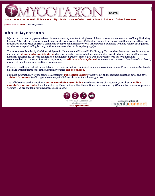
MYCOTAXON
metrics 2024
Illuminating the World of Mycology
Introduction
MYCOTAXON is a peer-reviewed journal dedicated to the field of mycology, focusing on the taxonomy, systematics, and ecology of fungi. Published by MYCOTAXON LTD, this journal plays a crucial role in advancing our understanding of fungal biodiversity and its significance within various ecosystems. Although it currently does not offer open access options, its contributions are vital to the scientific community, especially with its established presence since 1989. With an HIndex reflecting its relevance and attracting a dedicated readership, MYCOTAXON is recognized within the Q4 quartile in both Ecology, Evolution, Behavior, and Systematics, and Plant Science categories as of 2023. This places it among a critical cohort of journals that contribute to the understanding of ecological dynamics and plant-fungal interactions. Researchers, professionals, and students can benefit from the insights provided in MYCOTAXON, making it an indispensable resource for anyone involved in the study of fungi.
Metrics 2024
 0.22
0.22 0.40
0.40 0.50
0.50 48
48Metrics History
Rank 2024
Scopus
IF (Web Of Science)
JCI (Web Of Science)
Quartile History
Similar Journals
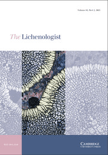
LICHENOLOGIST
Unveiling the Secrets of Lichens: Ecology, Evolution, and BeyondLICHENOLOGIST is a prestigious journal published by Cambridge University Press, dedicated to advancing the field of lichenology and promoting a deeper understanding of the ecology, evolution, and systematics of lichens. Established in 1958 and focusing on the convergence of research through 2024, this journal has established itself as a significant resource within the Q2 category of Ecology, Evolution, Behavior and Systematics. With a Scopus ranking of #316 out of 721 in its field, it highlights research that not only enhances academic knowledge but also has practical implications for ecology and conservation efforts globally. Although traditionally not an open-access journal, it provides valuable insights and contributes to the scientific community by disseminating high-quality, peer-reviewed research. LICHENOLOGIST is essential for researchers, professionals, and students looking to stay informed about the latest advancements in lichen studies, making it an indispensable resource for anyone involved in ecological and biological sciences.

FUNGAL DIVERSITY
Innovating Ecological Understanding Through Fungal ResearchFungal Diversity is a premier academic journal dedicated to advancing the science of mycology, encompassing ecological, evolutionary, and biological research involving fungi. Published by Springer, this journal has established a significant presence in the academic community since its inception in 1998, and it continues to thrive with a convergence period extending to 2024. Holding a prestigious Q1 ranking in several categories — including Ecology, Ecology, Evolution, Behavior and Systematics, and Plant Science — Fungal Diversity showcases cutting-edge research that influences ecological management, conservation, and biodiversity studies. With its notable positions in Scopus rankings, including being ranked #1 in Environmental Science - Ecology, the journal serves as an essential resource for researchers, professionals, and students interested in the complex interplay between fungi and their environments. Although it does not currently offer open access, interested readers can benefit from the journal's rich repository of peer-reviewed articles, making Fungal Diversity a vital component of the scientific literature landscape.

TURKISH JOURNAL OF BOTANY
Fostering collaboration in botanical research.Welcome to the TURKISH JOURNAL OF BOTANY, a prestigious publication dedicated to advancing the field of plant science. Established in 1990 and published by the Tubitak Scientific & Technological Research Council Turkey, this journal serves as a vital platform for researchers, professionals, and students to disseminate their findings and insights on various botanical topics. With an impressive H-index that underscores its academic influence and recognition in the field, the journal is positioned in the Q2 quartile of plant science according to the latest category rankings. The ISSN of the journal is 1300-008X and the E-ISSN is 1303-6106, ensuring broad accessibility in both print and digital formats. As of 2023, it ranks #213 out of 516 in Scopus for Agricultural and Biological Sciences, placing it in the 58th percentile, which highlights its competitive standing among botanical journals. Researchers are encouraged to engage with its open-access options where available, fostering a collaborative and accessible research environment. With its commitment to quality and scientific rigor, the Turkish Journal of Botany remains an essential resource for anyone engaged in the exploration of plant sciences.
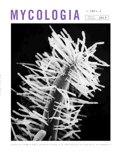
MYCOLOGIA
Unraveling the mysteries of mycology since 1945.MYCOLOGIA, published by Taylor & Francis Inc, is a prestigious journal that has been at the forefront of fungal research since its inception, with converging years of publication from 1945 to 2024. This interdisciplinary journal, identified by ISSN 0027-5514 and E-ISSN 1557-2536, stands out in various scientific categories, achieving Q1 rankings in Ecology, Evolution, Behavior and Systematics, as well as Plant Science, alongside strong performances in Cell Biology and Molecular Biology categories. With an impact factor that reflects its significance in the field, MYCOLOGIA appeals to a diverse audience, including researchers, professionals, and students dedicated to advancing the understanding of fungal biology and its ecological implications. Notably, while it does not currently operate under an Open Access model, the journal remains a vital resource for those pursuing groundbreaking discoveries in mycology and related disciplines.
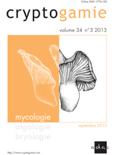
CRYPTOGAMIE MYCOLOGIE
Fostering Interdisciplinary Connections in MycologyCRYPTOGAMIE MYCOLOGIE is a prestigious journal published by ADAC-CRYPTOGAMIE dedicated to the study of mycology within the context of ecology, evolution, and biodiversity. With an ISSN of 0181-1584 and an E-ISSN of 1776-100X, this journal is recognized for its significant contributions to advancing knowledge in the field, holding a Q1 ranking in the 2023 Ecology, Evolution, Behavior and Systematics category on Scopus, placing it within the top tier of scholarly publications. Since its inception, with publication years converging from 1990 to 1993 and then from 1995 to 2024, it has served as a vital resource for researchers, professionals, and students alike, offering the latest findings, reviews, and methodologies in mycology. Despite being published without open access options, the journal maintains a strong academic standard and impact factor, established through a rigorous peer-review process. The journal is based in Paris, France, and aims to foster interdisciplinary research that bridges gaps between mycology and related ecological fields.
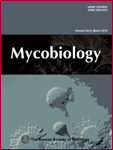
MYCOBIOLOGY
Connecting Disciplines Through Mycological InsightsMYCOBIOLOGY is an esteemed open-access journal published by Taylor & Francis Ltd, specializing in the fields of Infectious Diseases, Microbiology, and Plant Science. Since its inception, the journal has provided a platform for innovative research, showcasing a diverse range of studies that delve into the complexities of mycology and its vast implications on health, agriculture, and the environment. With a commendable impact factor and a Q2 ranking in Plant Science as of 2023, MYCOBIOLOGY facilitates the dissemination of vital findings to a global audience of researchers, professionals, and students. In addition to its commitment to high-quality content, MYCOBIOLOGY has embraced open access since 2018, ensuring that the latest advancements in mycological research are readily available to the academic community and the public. By bridging gaps in knowledge and fostering collaboration across disciplines, MYCOBIOLOGY plays a crucial role in advancing our understanding of fungal biology and its myriad applications.
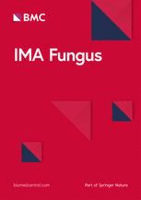
IMA Fungus is an esteemed open-access journal published by BMC, dedicated to advancing research in the fields of fungi, plant sciences, and ecological systems. With an ISSN of 2210-6340 and E-ISSN 2210-6359, this journal has been an influential platform since its inception in 2010, contributing significantly to the scientific community in the United States and beyond. The journal’s remarkable impact can be seen in its Q1 quartile rankings across multiple categories, including Agricultural and Biological Sciences, Ecology, Evolution, Behavior and Systematics, and Plant Science, positioning it among the top literary sources in these fields. Notably, IMA Fungus holds impressive Scopus rankings, with the Agricultural and Biological Sciences category placing it in the 98th percentile, evidencing its crucial role in disseminating impactful research. Given its commitment to fostering accessibility and collaboration, IMA Fungus continues to be an invaluable resource for researchers, professionals, and students aiming to explore and understand the complex roles of fungi within various ecosystems.

TAXON
Exploring the intricate web of life and its evolution.TAXON is a premier international journal published by Wiley, dedicated to the fields of ecology, evolution, behavior, systematics, and plant science. With a distinguished history since 1970 and a commitment to advancing knowledge in the biological sciences, TAXON has been recognized in the Q1 category for both its ecological and plant science contributions as of 2023. The journal boasts an impressive Scopus ranking, placing it in the 76th percentile for Ecology, Evolution, Behavior and Systematics and the 74th percentile for Plant Science, highlighting its significance and impact within these domains. While not an open-access publication, TAXON offers a wealth of high-quality research articles, reviews, and discussions, making it an indispensable resource for researchers, professionals, and students alike seeking to deepen their understanding of biodiversity and systematics. For access to its cutting-edge research, readers can follow the journal's updates and contributions online.

FRAGMENTA ENTOMOLOGICA
Bridging theory and practice in insect research.FRAGMENTA ENTOMOLOGICA is a prominent peer-reviewed academic journal published by UNIV DEGLI STUDI DI ROMA LA SAPIENZA, focusing on various dimensions of entomology and insect science. With an ISSN of 0429-288X and an E-ISSN of 2284-4880, this journal has embraced an Open Access model since 2006, ensuring that valuable research is widely accessible to the global scientific community. Based in Italy, at the DIPARTIMENTO DI BIOLOGIA ANIMALE E DELL'UOMO in Rome, FRAGMENTA ENTOMOLOGICA is recognized for its commitment to high-quality research, ranking in the Q3 category across multiple categories, including Ecology and Insect Science, in 2023. Its Scopus rankings further underscore its relevance, showcasing its role in advancing knowledge in the fields of Ecology, Evolution, and Insect Behavior. This journal serves as an essential resource for researchers, professionals, and students interested in the intricate world of insects and their ecological roles, fostering academic discourse that bridges theoretical and practical entomological studies.
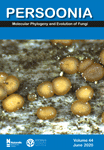
PERSOONIA
Exploring the Frontiers of Evolution and BehaviorPERSOONIA, a distinguished journal published by RIJKSHERBARIUM, serves as a pivotal platform for the dissemination of high-quality research in the fields of Ecology, Evolution, Behavior, and Systematics, as well as Plant Science. Established with a commitment to advancing scientific knowledge, PERSOONIA has achieved an impressive Q1 ranking in these areas, highlighting its significant impact within the academic community, as evidenced by its ranking of #12 out of 721 journals in its field, placing it in the top 2% of publications. With a publication history that spans from 1996 to present, the journal regularly features innovative studies that push the boundaries of understanding in ecological and botanical sciences. While Open Access options are currently limited, researchers and professionals alike benefit from subscription access to this vital resource. Located in the Netherlands, PERSOONIA continues to be a beacon for scholars aiming to enrich the discourse in evolving ecological and plant science disciplines.